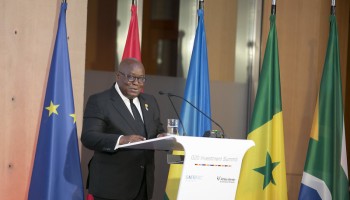Also, existing legislation is not developed enough to have a fully open and accountable political parties, said Mustafa. The two organizations rated the legal framework as 6.6 out of a possible 10. This lack of restrictions on donations from businesses hampers transparency and provides ample space for corruption, according to Mustafa.
“One of the main deficiencies is non-definition of rules to receive funding from the private donors that are engaged in contractual work with the Public Administration, which at the same time is a remark from the European Commission Progress Report.”
The report also cited loose rules for dating and formatting financial reports as an item of concern, in addition to weak sanctions and preventative measures.
“Similar assessments have also been made by other civil society stakeholders, who state that the political parties are extremely centralized, non-democratic, and enjoy the image of the institutions with the lowest reliability. These statements are confirmed also by the fact that the political parties have rewarded themselves with doubling of the state fund dedicated to financing themselves, which is also considered as arbitrary,” said Ms Mustafa.
Mustafa raised alarm that the government allocates €4 million a year for parties but information on how it gets spent is not made accessible to taxpayers.
Enis Xhemaili, a lead researcher on the report, said that one of the main issues is that there is no single law on political party financing. “All matters related to the financing of political parties, including regular financing, financing for general, local and presidential elections, should be included in one single law: the Law on the Financing of Political Parties,” he said.





